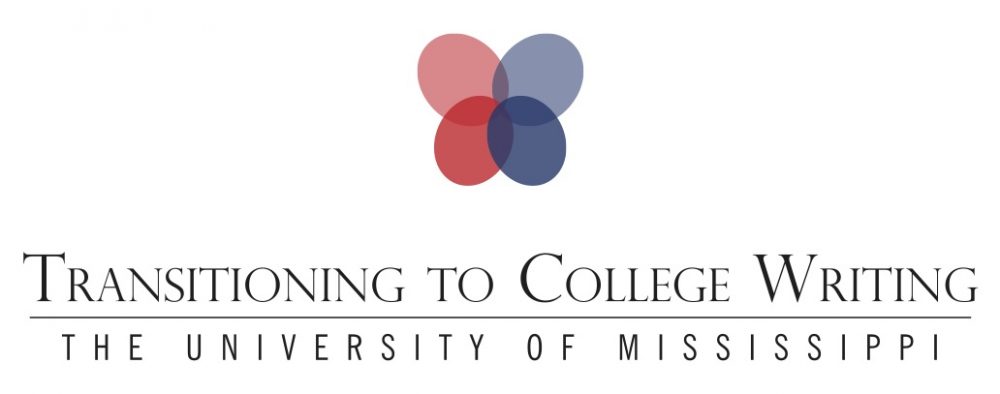“This is boring.” “This is stupid.” “I shouldn’t have to take this class. It’s pointless. I’m a good writer!” “I hate to write.” “I hate to read AND write.”
Having been in first-year college composition classrooms for twenty years, I have heard students’ distancing comments in halls, coming into and leaving classrooms, and I have heard them in the classroom and in journals when I have invited student feedback on reading or writing assignments. During summer “College Writing” workshops, I also heard rising juniors and seniors share their fears about writing in college. Might “boring” and “stupid” be interpreted as “scary”? Of looking stupid?
In 2010, I found an article entitled “Bullshit in Academic Writing,” in which Peter Smagorinsky et al. (2010) share “one high school senior’s process of academic bullshitting” (p. 368), and I was immediately intrigued. After the authors define “bullshit,” they explain that “although it is known as a common phenomenon in academic speech and writing, it has rarely been the subject of empirical research” (p. 368), and they reference Macrorie’s 1970 term “Engfish: the spuriously elevated language seemingly endemic to school writing” (qtd. in Smagorinksy et al., 2010, p. 369). While students’ language may reveal a lack of engagement, it is, unfortunately, nothing new and may mean their expectations have achieved a level of carefully honed disengagement. But why?
I took the article and my question to class and asked my students. I held up the journal, Research in the Teaching of English, a serious peer-reviewed journal in my field, I explained, and I read them the title of the article. Of course, they laughed as sideways glances shot around the room. I asked if they knew what the authors meant. They erupted, “Yes!” And they explained, and I asked, “Have you ever written bullshit?” (Remember, this is in a college classroom, not high school.) Again, but a bit sheepishly, they replied, “Yes.” When I asked, “Why?” I got an earful: boring, stupid, pointless assignments. Writing had become something, anything, just to get the task done, to please a teacher or get a passing grade because “I didn’t care about the topic.” Writing in school had become pointless, an act of bullshitting. Why? How might we build, design, revise “assignments” with a point, one that students can see, one they can relate to?
All of us convening on this website, considering or planning to attend the TCW Symposium this weekend (even if we don’t have the time or can’t get the funding) care about students. But are we engaged as teachers? What does “engaged” mean? We want to reach our students, to engage them, but how? And high school teachers have more restrictions in the classroom and in the curriculum than college teachers, yet we each must negotiate institutional expectations, meet our students where they are, and try to move them forward, to help them be more effective, more engaged readers, writers – people. Do we know what students expect when they walk into our classrooms? How might we acknowledge – and change – their expectations?
As a composition instructor and a writing center director, I have heard – like a student mantra – “I hate to write.” “Really,” I often respond, “that’s not unusual. But you text, tweet, Facebook, yes?” (Is “Facebook” a verb yet?) “Yes, but that’s different,” they explain. “How?” I ask.
Then we engage in a conversation – and I ask them to write. Later I ask, “What was your worst writing experience?” And they write. And I ask, “What was your best writing experience?” (Sadly, some explain that they have never had a good writing experience. And we talk.) Then we compare and contrast their bad and good writing experiences, looking for similarities and differences, for what elicits bullshit. It is enlightening – for them and for me.
This approach may seem limited in its usefulness, but it has helped me at the beginning of the last several semesters. After years of conditioning, feeling that their perspectives rarely matter, students will not engage with one simple “shot” of engagement. It has to become a habit of mind. It is exhausting for me, but when students do begin to “come around,” usually around midterm or after, sometimes not until after they leave my class and come back to tell me, the work was worth it. This is why we need to come together, to share ideas, to invigorate our teaching, to engage among ourselves.
See you in Oxford!
-Kathi R. Griffin, Jackson State University
Reference
Smagorinsky, P., Daigle, E. A., O’Donnell-Allen, C. & Bynum, S. (2010). “Bullshit in Academic Writing: A Protocol Analysis of a High School Senior’s Process of Interpreting Much Ado About Nothing.” Research in the Teaching of English 44(4) May: 368-405.
